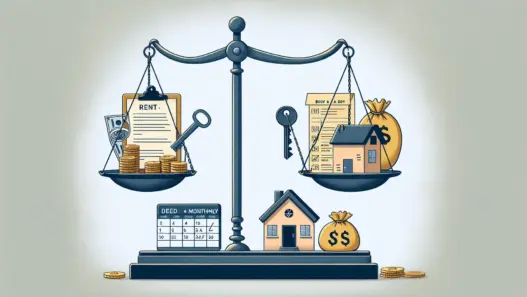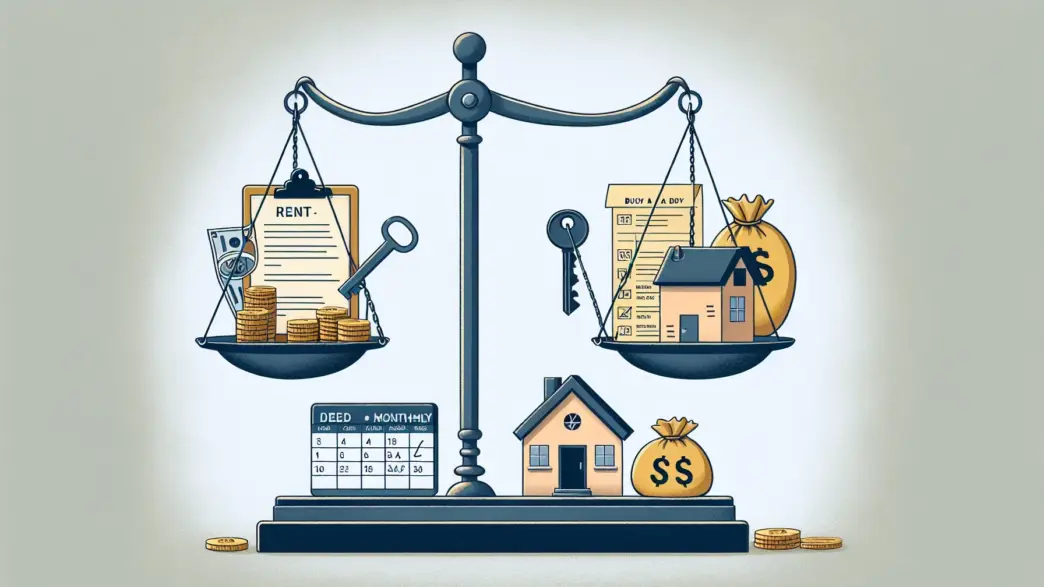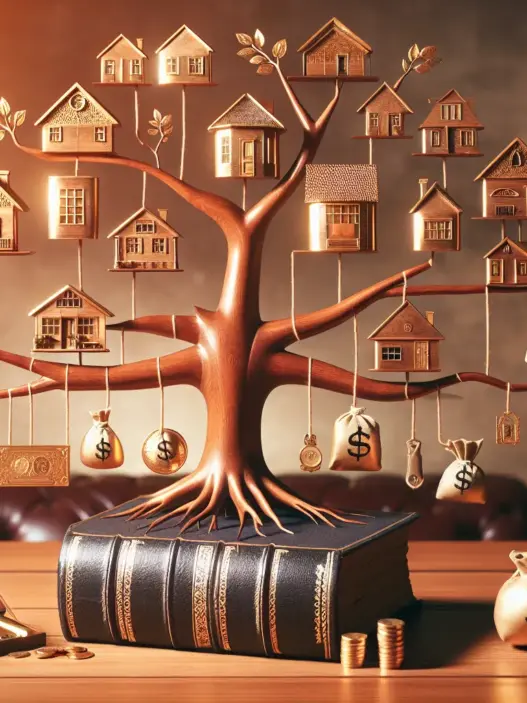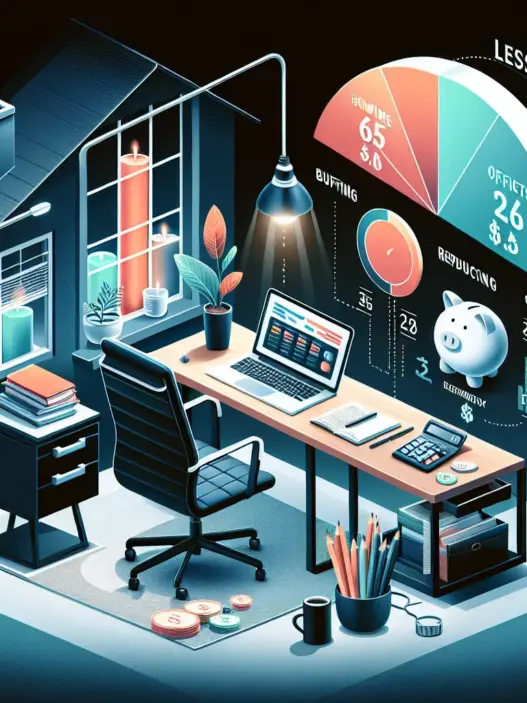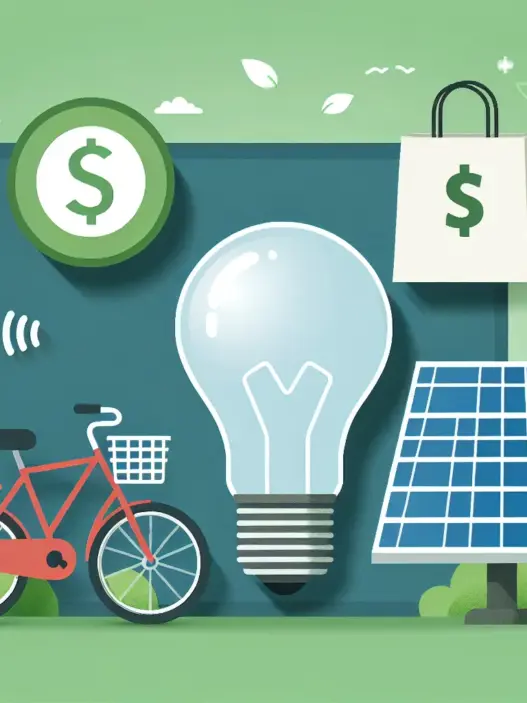Deciding whether to rent or buy a home is a significant financial decision that can impact your long-term financial health. Both options have their advantages and drawbacks, and the right choice depends on your personal circumstances, financial goals, and local real estate market conditions. Let’s explore the financial aspects of renting versus buying to help you make an informed choice.
The Financial Benefits of Renting
Lower Upfront Costs
Renting typically requires less money upfront compared to buying a home. While you’ll need to pay a security deposit and possibly first and last month’s rent, these costs are usually much lower than the down payment required for a home purchase.
Flexibility and Mobility
Renting offers greater flexibility, which can be financially beneficial if you need to relocate for work or other reasons. You’re not tied to a specific location, making it easier to pursue career opportunities or adjust your living situation as needed.
Predictable Monthly Expenses
As a renter, your monthly housing costs are generally more predictable. Rent payments are fixed for the duration of your lease, and you’re not responsible for most maintenance and repair costs. This predictability can make budgeting easier and help you save money living payslip to payslip.
No Property Taxes or Homeowners Insurance
Renters don’t have to worry about property taxes or homeowners insurance, which can be significant expenses for homeowners. While renters insurance is recommended, it’s generally much less expensive than homeowners insurance.
The Financial Drawbacks of Renting
No Equity Building
Perhaps the biggest financial drawback of renting is that you’re not building equity in a property. Your monthly rent payments don’t contribute to any long-term investment or asset.
Potential Rent Increases
While rent is predictable in the short term, landlords can increase rent over time, potentially outpacing wage growth and making long-term budgeting challenging.
Limited Control Over Living Space
As a renter, you have limited ability to customize your living space or make improvements that could increase your quality of life or potentially save money (like energy-efficient upgrades).
The Financial Benefits of Buying
Building Equity
When you buy a home, each mortgage payment builds equity in your property. This equity can be a valuable asset for your long-term financial health and can be tapped into later if needed.
Potential Appreciation
In many markets, home values tend to appreciate over time. This can lead to significant wealth accumulation, especially if you stay in the home for many years.
Tax Benefits
Homeowners can often deduct mortgage interest and property taxes on their income tax returns, potentially leading to significant savings. It’s important to understand the benefits of itemizing tax deductions to maximize these advantages.
Stable Housing Costs
With a fixed-rate mortgage, your principal and interest payments remain the same for the life of the loan, providing stability in your housing costs over time.
The Financial Drawbacks of Buying
High Upfront Costs
Buying a home requires a significant upfront investment, including a down payment, closing costs, and possibly new furniture or appliances. This can deplete savings or require taking on additional debt.
Ongoing Maintenance and Repair Costs
As a homeowner, you’re responsible for all maintenance and repairs, which can be unpredictable and expensive. It’s crucial to have an emergency fund to cover these unexpected costs.
Property Taxes and Insurance
Homeowners must pay property taxes and homeowners insurance, which can be substantial ongoing expenses that increase over time.
Potential for Value Depreciation
While homes often appreciate in value, this isn’t guaranteed. Market conditions can lead to depreciation, potentially leaving you with negative equity if you need to sell.
Making the Decision
When deciding between renting and buying, consider your financial situation, long-term goals, and local market conditions. Personal finance tips can help you assess your readiness for homeownership.
If you’re not planning to stay in one place for at least 5-7 years, renting might be more financially prudent. However, if you’re ready to settle down and have stable income and savings, buying could be a solid long-term investment.
Remember to factor in all costs associated with both renting and buying, including hidden expenses like HOA fees for homeowners or moving costs for renters. Use online calculators to compare the long-term financial implications of renting versus buying in your area.
Ultimately, the decision to rent or buy should align with your overall financial plan. Whether you choose to rent or buy, prioritize saving for retirement and maintaining a balanced financial portfolio.
By carefully weighing the pros and cons and considering your personal circumstances, you can make a choice that supports your financial well-being both now and in the future.
Frequently Asked Questions
Is it cheaper to rent or buy a home?
The cost comparison between renting and buying depends on various factors, including location, market conditions, and personal finances. While renting typically has lower upfront costs, buying can be more cost-effective in the long term due to equity building and potential property appreciation.
How long should I plan to stay in a home for buying to make financial sense?
Generally, it’s recommended to plan on staying in a purchased home for at least 5-7 years. This timeframe allows for potential property appreciation and helps offset the initial costs of buying, such as closing costs and real estate fees.
What are the main financial benefits of homeownership?
The primary financial benefits of homeownership include building equity, potential property appreciation, tax benefits (such as mortgage interest deductions), and stable housing costs with a fixed-rate mortgage. These factors can contribute to long-term wealth accumulation.
Are there any hidden costs associated with buying a home?
Yes, there are several hidden costs of homeownership. These may include property taxes, homeowners insurance, maintenance and repair costs, and possibly homeowners association (HOA) fees. It’s important to factor these expenses into your budget when considering buying a home.
How does renting affect my ability to save money?
Renting can positively impact your ability to save money in several ways. It typically requires lower upfront costs, offers more predictable monthly expenses, and doesn’t involve maintenance or repair costs. This financial flexibility can allow renters to allocate more funds towards savings and investments.









